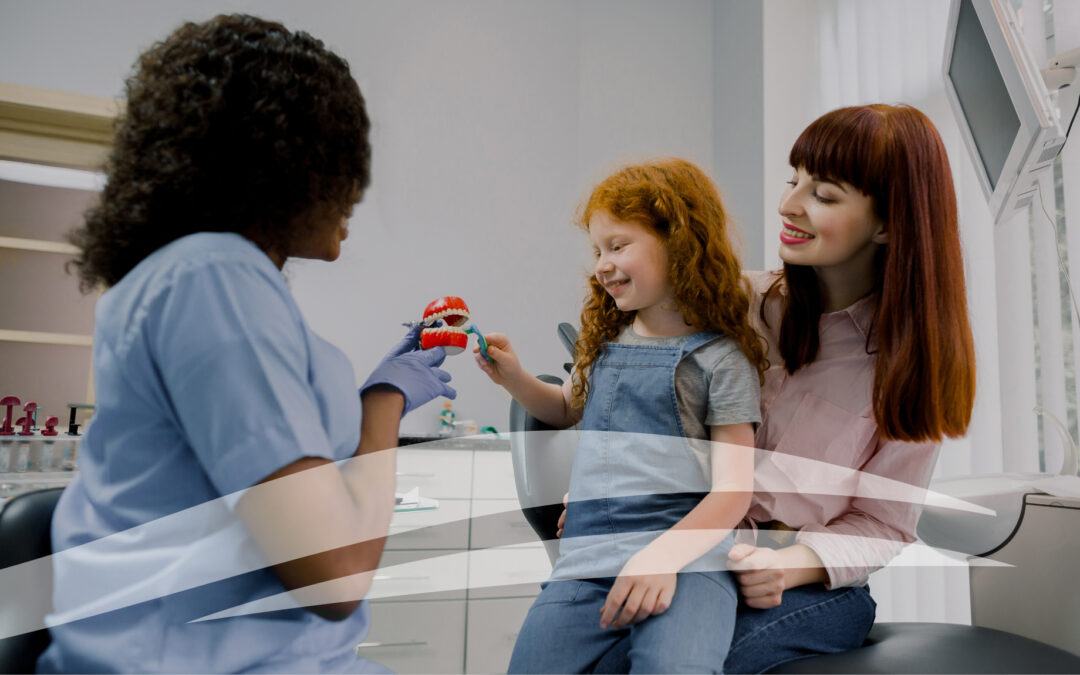Try These Tips To Ease Dental Anxiety in Children
Adults are not the only patients who experience dental anxiety. Studies reveal that around 7% of children exhibit dental fear by age 7, with this number increasing to 8% by age 9. These fears can stem from various factors, such as past negative experiences or the unknown nature of dental treatments, and can be challenging for parents to navigate. However, there are strategies that can help alleviate your child’s anxiety for a positive dental experience.
By implementing these helpful tips, you can create a positive and comfortable dental experience for your child. From finding the right dentist to preparing them in advance and fostering familiarity, these tips will empower you to ease your child’s dental anxiety and confidently promote their oral health.
1. Find the right dentist.
Finding the right dentist for your child is paramount as it sets the foundation for a positive dental experience. Look for a dentist who offers modern dental technology to create a comfortable environment for your child.
Opting for a pediatric dentist or family dentist who provides pediatric care ensures that your child receives age-appropriate treatment. Equally crucial is feeling seen, heard, and comfortable in the dental practice, which encourages a trusting relationship between your child and the dentist.
2. Avoid surprises.
Avoid surprising your child with dental appointments. Depending on their age, inform your child about their dental appointment one day, a few days, or even a week in advance. Giving them this information beforehand allows them to mentally and emotionally prepare for the visit. This helps to minimize any sudden stress that may arise from unexpected appointments, promoting a more relaxed and cooperative mindset during their dental visit.
3. Don’t skip out on those preventive cleanings.
Regular dental evaluations and professional cleanings every six months are vital for your child’s oral health. Skipping these appointments raises their risks of tooth decay, gingivitis, bad breath, and more in the long run.
By receiving regular preventive dental care, your child develops a routine that prioritizes oral health to ensure early detection and prevention of dental issues. Moreover, consistent visits help foster a positive relationship with their dentist, eliminating “stranger danger” associated with unfamiliar health care professionals.
4. Practice great oral hygiene at home.
Teaching your child good oral hygiene habits at home is crucial for their dental health and will contribute to their comfort during dental visits. By regularly practicing brushing and flossing, they become familiar with the sensation of dental instruments in their mouth. It also instills a sense of ownership and control, empowering them to take responsibility for their teeth and oral health.
Encourage them to develop a routine, emphasizing the importance of thorough brushing and proper technique. By establishing these habits early on, your child will feel more confident and prepared for future dental appointments.
5. Make dentist day a fun, reward-free day.
Creating a positive association with dental visits involves reframing the experience as a fun day from the start. Instead of rewarding good behavior, which may reinforce the idea that the dentist is scary, enjoy dentist days by incorporating a fun activity afterward. Consider going out to lunch, to the zoo, or even to a pet store to smile and giggle at the adorable pets for sale.
By doing so, your child will develop a positive connection in their mind, associating dental visits with excitement and something to look forward to. This approach helps alleviate anxiety and cultivates a positive attitude toward oral health care, making dental appointments pleasant events.
6. Talk openly and honestly about going to the dentist.
When discussing dental visits with your child, communicate in simple, age-appropriate terms. Explain what will happen during the visit and answer their questions honestly and directly. Keep the conversation brief, avoiding overwhelming details that may increase anxiety.
By providing clear explanations and maintaining open communication, you help your child understand what to expect and ease their fear. This approach fosters a sense of trust and prepares them for a more comfortable dental experience, promoting a positive attitude toward oral health care.
7. Opt for the scenic tour beforehand.
Familiarizing your child with the dental environment can significantly ease their anxiety. Before their first appointment, consider arranging a dental office tour so they can become comfortable with the surroundings and meet the dental team.
Additionally, engaging in play with dental-themed toys, books, or even interactive apps can help familiarize your child with dental treatments in a fun and nonthreatening way. These activities provide a sense of familiarity and build their confidence. Introducing them to the dental setting through exploration and play lays a foundation for positive dental experiences.
We’re pros at helping relieve dental anxiety in children.
Addressing dental anxiety in children is crucial for their oral health and well-being. By implementing the tips mentioned earlier, you can help ease your child’s dental anxiety for good.
As a family-centered dental practice near Middletown, Ohio, we are adept at caring for kids who experience dental anxiety. We understand the unique needs of young patients and strive to create a comfortable, supportive environment they love to visit. Don’t hesitate to reach out and request an appointment with our experienced team. Together, we can ensure your child has a stress-free dental appointment.

